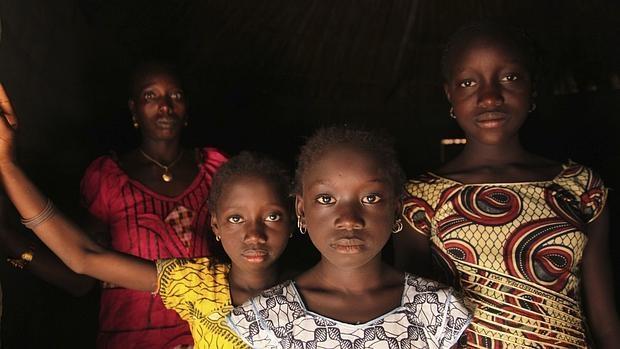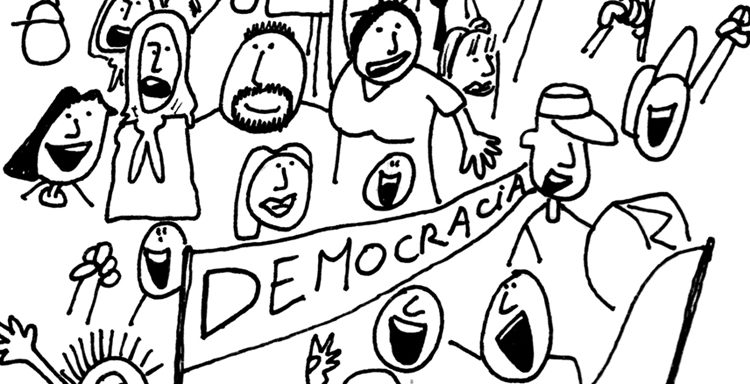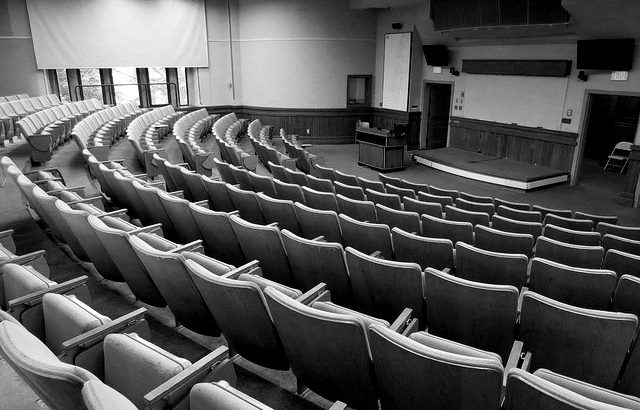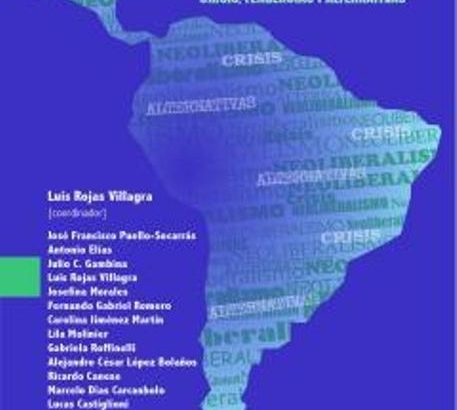Por: Raquel Rosario Sánchez
Las niñas invulnerables del “trabajo sexual”
Imaginemos una niña. Puede tener 8 años como puede tener 17. La niña vive en pobreza extrema. Es probable que su padre y su madre hayan fallecido en medio de un conflicto de guerra. Por lo tanto, la niña tiene que valerse por sí misma para encontrar el pan de cada día. Muchos días solo puede cenar y dice que el hambre le da dolor de cabeza, lo que le dificulta concentrarse en la escuela. La niña no está sola; hay muchas más como ella. Aparte de las adversidades descritas anteriormente las niñas comparten algo más… Primero, un ferviente deseo de ir a la escuela y superarse a través de su educación. Segundo, que diariamente los hombres (quizás uno 1, quizás 4) en su pueblo le pagan menos de un dólar para que se acuesten con ellos.
¡Ah! …y tercero: que según Al Jazeera English esto no es ni explotación sexual comercial de menores, ni prostitución “forzada” ni su genérico “prostitución” sin más ni más. No, según Al Jazeera English estas niñas son trabajadoras sexuales. Trabajadoras sexuales en quienes recae el famoso “poder de agencia”, de decidir sus opresiones. ¿Vomitaron ya o necesitan más contexto?
El día 28 de septiembre, Al Jazeera English público un fotoreportaje titulado “Educando a las niñas de Sudán del Sur”, escrito por la documentalista y fotógrafa Sara Hylton. El proyecto fotográfico fue elaborado en colaboración con la Fundación Internacional de Mujeres en los Medios. Es una serie de fotografías que reflejan las vidas de las niñas y adolescentes del estado de Unidad en Sudán del Sur. Conflictos sectarios dentro de su pueblo, caminar horas para poder ir y venir de la escuela más cercana, matrimonios forzados… y pobreza; la pobreza extrema implacable son alguno de los desafíos con los que viven las niñas.
“Las niñas de Sudan del Sur son doblemente vulnerables, muchas son obligadas a contraer matrimonios forzados, sufren abusos sexuales y explotación. Es tres veces más probable que una niña adolescente del Sur de Sudán muera dando a luz, a que complete su educación primaria,” escribe Hylton. Pero a pesar de todo, son niñas fuertes con sueños y deseos inquebrantables de superación “que pelean por sus futuros en uno de los países más volátiles del mundo.”

Es una historia inspiradora y llena de esperanza. Una de las niñas comenta que en su casa nadie la puede ayudar con su tarea porque nadie en su familia ha ido a la escuela pero que, aún así, ella sueña con convertirse en Ministra de Educación en su país. La valentía y determinación de las niñas y adolescentes me hicieron llorar… Por lo que me quedé helada cuando leí la siguiente descripción en una de las fotografías. “Jessica, de 14 años tiene desorden de personalidad múltiple. Vive en una casa de acogida junto con otras 50 niñas vulnerables donde recibe cuidados y educación… Según la fundadora de la casa de acogida, el trabajo sexual está normalizado entre las niñas, que ganan menos de un dólar por “cliente”. La meta de la fundadora es enseñarles a las niñas que “su cuerpo es lo que se queda” y enseñarle maneras alternativas de generar dinero.”
¿Qué? ¿Cómo saltamos de la pobreza extrema y el deseo de las niñas a empoderarse a través de la educación a que las niñas son trabajadoras sexuales con “clientes”? Me llevó un segundo entender el salto gigantesco que expresaban estas palabras en el contexto del artículo. Cuando pude analizarlo me di cuenta de que lo que tenía ante mí era una prueba de cómo la retórica del trabajo sexual es incompatible con las realidades materiales que expresan las niñas. El discurso del “trabajo sexual” no admite ni víctimas ni vulnerabilidades ni opresiones estructurales. Toda mujer y niña se convierte en un ser que encuentra poder “para decidir” acceder, curiosamente, a todo lo que el patriarcado de por sí quiere. No hay situación lo suficientemente precaria, no hay niña lo suficientemente vulnerable para ser interpretada como una “trabajadora sexual”.
No son argumentos aislados. Consciente o inconscientemente, Hylton se unía a una línea de pensamiento que insidiosamente se ha adentrado en el feminismo y el lenguaje coloquial. Mucha gente, tanto conservadora como progresista, piensan que utilizar el término “trabajo sexual” le pone un poco de dignidad y respeto al asunto. Funciona como un manto para higienizar la industria y así no tener que pensar en las realidades materiales de que hombres adultos (que curiosamente son los grandes ausentes del fotorreportaje de Al Jazeera) le están pagando menos de un dólar a niñas pobres (¿50 centavos, 75 centavos? ¿menos aún?), muchas huérfanas, para penetrarlas.
La universalización del discurso del “trabajo sexual” para hablar de prostitución es el triunfo del patriarcado más neoliberal
La universalización del discurso del “trabajo sexual” para hablar de prostitución es el triunfo del patriarcado más neoliberal. A los conservadores no les digo mucho porque nunca se han preocupado demasiado por los derechos de mujeres y niñas, pero sí quisiera recordarles a los y las progresistas que en la concepción (capitalista) del trabajo hay derechos laborales, pero también deberes. Si las niñas y adolescentes son trabajadoras sexuales, ¿puede uno de esos hombres reclamar que no le hicieron la felación como ellos querían o que no se sienten conforme con cualquier otro de los actos sexuales por los que pagaron? ¿Y pueden entonces demandar o que le devuelvan su dinero o que lo hagan otra vez? Preguntas que demuestran la trampa absurda en la que caen todos quienes asumen el discurso sin pensarlo bien.
¿Por qué tanta insistencia en que lo cubramos todo bajo el manto del “trabajo sexual”? ¿Por qué tanta insistencia en llamar “trabajadoras sexuales” a niñas que viven en la mayor de las precariedades? ¿Por qué negarnos a decir las palabras duras: explotación sexual, víctimas, sobrevivientes, violación?
Como nos explica Kajsa Ekis Ekman en su trabajo referencial ‘Being and Being Bought’ (Ser y Ser Comprada), el discurso del trabajo sexual se construye como una antítesis de la opresión de las mujeres bajo un sistema patriarcal. La trabajadora sexual es una mujer activa que encuentra empoderamiento personal dentro de un sistema opresor, dice el discurso. La trabajadora sexual comprende que nada puede cambiar el comportamiento de los hombres ni la sociedad que cosifica la sexualidad de la mujer, entonces, en vez de resistir o protestarlo, la trabajadora sexual es presentada como una sabia emprendedora que utiliza “su poder sobre los hombres” para aventajarlos en su propio juego. Bajo esta concepción, “la trabajadora sexual es interpretada como la mejor feminista”, explica Ekis Ekman. Es por eso que cuando alguien intenta hablar de los daños que causa la prostitución, la respuesta siempre es “las trabajadoras sexuales son fuertes y sujetos activos” a quienes el lenguaje de opresión y agravios minimiza. Entonces en el discurso del trabajo sexual no hay espacios para ningún tipo de víctima ni victimización.
Desmoronemos el argumento:
1.La literatura feminista que critica la prostitución como sistema opresor casi nunca habla de víctimas. Cuando me encuentro con la palabra “víctimas” en mis investigaciones sobre el tema, siempre es en el contexto de académicas en favor de prostitución que acusan a quienes están en contra de estigmatizar como “víctimas” a las mujeres en la prostitución. Estas acusaciones de las académicas que defienden el derecho de los hombres a acceso sexual e ilimitadamente al cuerpo de mujeres y niñas, nunca cita textualmente ningún ejemplo del crimen retórico que cometen quienes no apoyan la prostitución, pero siempre viene acompañado de acusaciones e improperios contra “las feministas moralistas que odian la libertad, son reprimidas, retrogradas y anti-sexo.” Poniendo de lado las connotaciones sexistas que tienen cada una de esas acusaciones, yo hago otra pregunta ¿y qué si el feminismo decidiera hablar de víctimas?
La palabra “víctima” no es una característica personal, en una descripción de una relación de poder. Si hay víctimas, se infiere que hay perpetradores. Si bajo está concepción de las relaciones de poder no podemos hablar de víctimas, entonces ¿dónde quedan los perpetradores? Si nos enfocamos sólo en resaltar lo fuertes y empoderadas que somos todas las mujeres todo el tiempo y no hablamos de las opresiones de las que somos víctimas bajo el patriarcado, entonces ¿en qué contexto hablaremos del daño que nos causa?
Ser víctima de una opresión habla mal del opresor. La víctima de x opresión puede ser una joven estudiosa, una tía cariñosa, una cocinera mediocre, una trabajadora medio vaga, una amiga ambivalente, entre otras cosas. ¿Por qué asumimos que ser víctimas de un sistema al que le encanta victimizarnos, cancela todas nuestras otras identidades? En vez de negar que el daño que nos causa el patriarcado es real y que el patriarcado es el genocidio más largo de la historia, tratando de esconder sus opresiones bajo lenguaje (y solo lenguaje) empoderador, deberíamos utilizar esa energía para decirle a los perpetradores “No, no. La víctima pude haber sido yo, ¡pero el abusador eres tú!”
2. Esa idea de que “el trabajo sexual” no es ninguna opresión contra las mujeres y niñas, sino El Gran Empoderador porque nos permite ejercer “nuestro poder” sobre los hombres, es en el fondo enteramente misógino. Una vez una amiga que baila en la barra para pagar su tratamiento de cáncer me racionalizó que el verdadero poder lo tenía ella porque a los hombres se les salía la baba cuando la veían bailar y por tanto ella tenía total control de ellos durante el tiempo que ella tenía su atención y excitación sexual.
Sí, ¿pero, cuando se les baja la erección? Cuando se les pasa, son los hombres quienes siguen teniendo el poder político, económico, cultural y estructural de toda nuestra sociedad. El dinero que nos pagan por bailarles viene de un sistema financiero que ellos controlan. Las políticas que controlan nuestro cuerpo (desde nuestros derechos reproductivos hasta el impuesto que pagarán los tampones que nos ponemos) son dominadas por hombres. Y tristemente, son los hombres quienes tienen el poder histórico de decidir que esta noche sea la pelirroja ucraniana no la morena salvadoreña quien le “trabaje” sexualmente.
Las políticas que controlan nuestro cuerpo (desde nuestros derechos reproductivos hasta el impuesto que pagarán los tampones que nos ponemos) son dominadas por hombres.
Argumentar que encontremos “poder” dentro de nuestro rol subordinado es la manera más sutil del patriarcado (como buen abusador al fin) de decirnos “Ay, ya no te quejes tanto. ¡Alégrate de que siquiera te presto atencion!”
“¿Por qué tanto miedo de llamar a alguien víctima?” pregunta Ekis Ekman. “¿Por qué es tan importante decir que gente prostituida no puede nunca, bajo ninguna circunstancia, ser víctima?”, porque, según explica, “convertir la palabra víctima en un tabú es un paso para legitimar divisiones de clase y las desigualdades de género”. Solo tras abolir el concepto de víctima, podemos crear a la persona invulnerable.
Solo tras abolir el concepto de víctima, podemos crear a la persona invulnerable.
Para llegar ahí necesitamos 2 pasos:
1. Nos creemos el cuento de que la palabra víctima no es una relación de poder sino una característica o identidad personal. Entonces nos creemos el cuento de que “víctima” significa pasividad, debilidad y apatía. Hacemos de la palabra víctima (y de cualquier persona a quien se le asocie) una caricatura patética. Nadie entonces querrá que se le llame víctima ni tildar ninguna otra opresión como victimizante. La caricatura que hemos construido es tan patéticamente inactiva que cualquier cosa, desde mirar al otro lado mientras te viola un prostituidor hasta fumarnos un cigarrillo después de un acoso, representa un acto de resistencia. Esto sabemos que son estrategias de supervivencia y que no cancelan ni las opresiones anteriores ni el daño que conllevan. Pero como ya hemos determinado que víctima=pasividad absoluta y sujeto activo=literalmente cualquier actividad, entonces asumimos que en realidad las víctimas no existen.
2. Como lógicamente nadie (excepto quizás las personas que se encuentran en un coma) es “tan pasivo” como la caricatura que hemos inventado de la víctima, decidimos que el concepto de víctima deber ser remplazado porque es una falacia. “¿Cómo puede ninguna de esas niñas ser víctimas de nada si ellas aceptan el dinero que les pagan los hombres? ¿Aceptar dinero es un acto que te convierte en sujeto activo, verdad?” Esos análisis me recuerdan mucho a los argumentos que hace la gente que no entiende ni un ápice de cómo funciona la violencia. El argumento va en la misma línea de aquel otro que asume que a menos que te estén poniendo una pistola en la nuca y te estén amenazando con tirar del gatillo EN ESE PRECISO MOMENTO, entonces nada es obligado y todo tu lo haces por voluntad. Una línea que ignora completamente que el abuso y la opresión es muchísimo más multifacética y más insidiosa que eso. Una línea de pensamiento que nunca se ha enterado que la violencia psicológica es invisible, la manipulación emocional también y que la pobreza es tanto material como estructural y conlleva un poder de coerción latente.
Como no hay víctimas que satisfagan la nueva caricatura de pasividad en que hemos convertido la palabra, no hay perpetradores. Y como la víctima es “revelada” como un sujeto activo que toma las riendas de su vida, no hay entonces porque estar hablando de opresiones ni de abusos ni hacer análisis sistemáticos de la violencia. Son unas piruetas retoricas e ideológicas complicadas pero que sirven finalmente para revelar a la persona invulnerable.
“La persona invulnerable es la versión neoliberal del mito antiguo del esclavo fuerte, la mujer pobre extremadamente trabajadora, la “supermujer” negra, la mujer colonizada que no siente los latigazos ni los golpes. La historia está llena de ejemplos de cómo las condiciones de vida son reinterpretadas como características personales.” Durante la esclavitud colonial en los Estados Unidos era común que se exaltara las cualidades “sobrehumanas” de las esclavas y los esclavos.
La supuesta fuerza y las cualidades supra humanas que se le asignan a la persona invulnerable son en el fondo una excusa para no tener que analizar las condiciones que la hacen necesitar dicha fuerza o aguantar tantas miserias. Es una táctica deshumanizadora.
La escritora Michele Wallace describe en su libro ‘Black Macho and the Myth of the Superwoman’ (El Macho Negro y el Mito de la Supermujer) cómo la mujer negra que tenía que sobrevivir dentro de varios sistemas opresores, fue convertida en una caricatura que la exaltaba, pero solo con el fin de negar las opresiones en sí. La mujer negra del imaginario “es una mujer de fuerza extraordinaria, con una habilidad inusual para tolerar el trabajo pesado y la miseria. Esta mujer no tiene los mismos miedos e inseguridades que tienen las otras mujeres, pero ella misma cree que es incluso más fuerte emocionalmente que la mayoría de los hombres.”
La supuesta fuerza y las cualidades supra humanas que se le asignan a la persona invulnerable son en el fondo una excusa para no tener que analizar las condiciones que la hacen necesitar dicha fuerza o aguantar tantas miserias. Es una táctica deshumanizadora.
Asignar a las adolescentes y niñas de Sudan del Sur la denominación de “trabajadoras sexuales” sonara muy bonito los círculos feministas más neoliberales, pero la realidad es que nos blinda de tener que hacer muchas preguntas. Preguntas verdaderamente incómodas: ¿Qué repercusiones físicas, emocionales y psicológicas desarrollarán las niñas y adolescentes al saber que los hombres de su comunidad ven sus cuerpos como objetos por los que pueden pagar menos de un dólar? ¿Por qué los hombres están explotando sexualmente de niñas que viven en tanta precariedad? ¿Habrá un contexto social que se lo permite? ¿Qué contexto geopolítico estará causando tantos conflictos internos en Sudán del Sur? ¿Tendrán algo que ver los intereses occidentales en este conflicto y será posible que de manera directa o indirecta estarán nuestros países exacerbando las condiciones que subyugan las niñas y adolescentes de este fotorreportaje?
¿Cómo hemos podido las feministas permitir que nuestro movimiento, un movimiento que centra la lucha de las niñas y mujeres, sea secuestrado por estas ideas que priorizan los intereses tanto del mercado como del mismo patriarcado?
¿Cuánto daño causará a largo plazo que esa rama del feminismo occidental tan nociva que insiste en hacer piruetas con el lenguaje y las teorías sin alterar las realidades materiales sea exportada y extrapolada a la máxima potencia en todas las esquinas y rincones de opresión imaginables? ¿en qué momento vemos niñas hablar del dolor de cabeza que les produce el hambre cuando lo que quieren es estudiar, y en vez de sentir empatía por su lucha, justificamos el sistema opresor que las considera “trabajadoras” serviles del patriarcado?
El feminismo es un movimiento que busca acabar con la violencia contra las niñas y mujeres y desmantelar el patriarcado. ¿Cómo hemos podido las feministas permitir que nuestro movimiento, un movimiento que centra la lucha de las niñas y mujeres, sea secuestrado por estas ideas que priorizan los intereses tanto del mercado como del mismo patriarcado?
Dice una de las adolescentes “Lo que encuentro más horrible es escuchar cómo todas las niñas han sido violadas. No hay nada difícil que una niña no pueda hacer… Sé que, si yo me levanto, todas las niñas también se podrán levantar…. (pero) las niñas son las que han sufrido más.”
Me parece que esta adolescente tiene muy claro su análisis feminista al priorizar en su recuento la importancia de nombrar la violencia por su nombre. ¿Le permitiremos que nos enseñe?
Fuente: http://tribunafeminista.org/2016/10/el-discurso-del-trabajo-sexual-es-el-triunfo-del-patriarcado-mas-neoliberal/














 Users Today : 14
Users Today : 14 Total Users : 35460277
Total Users : 35460277 Views Today : 19
Views Today : 19 Total views : 3418987
Total views : 3418987